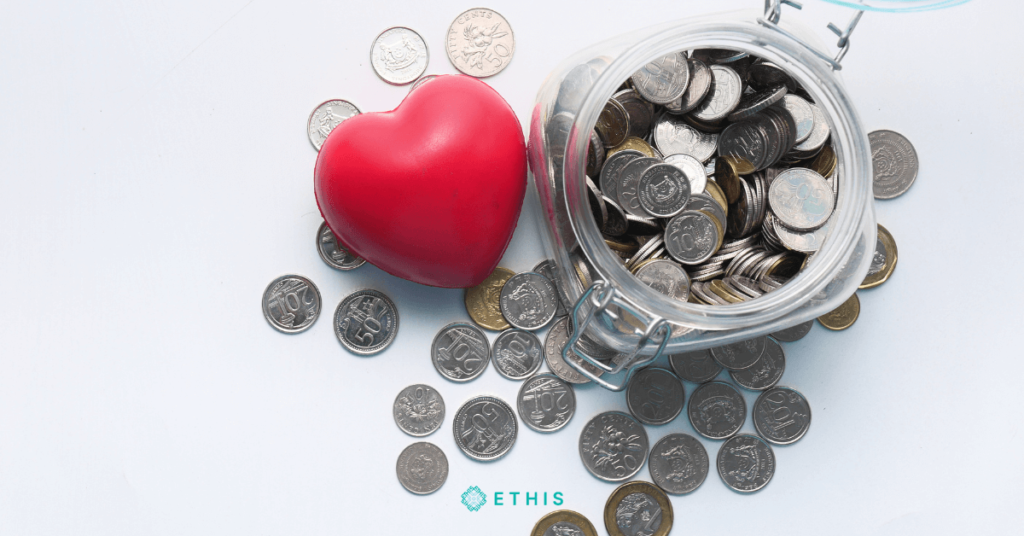
While conventional finance still reigns as the predominant mode of economics throughout the world, it’s safe to say that social finance is gaining plenty of traction as a viable and effective alternative in a lot of ways.
In a nutshell, the concept of social finance stems from a genre of financial services that aim to leverage private capital for the use of addressing challenges in various areas. These areas can include social well-being, environmental preservation and other elements of public benefit.
This involves the process of how businesses and individuals raise their capital, how investments are adopted and managed, and how money is distributed, consolidated or utilised. It’s a holistic approach that encompasses many aspects of philanthropy.
In essence, social finance acts as a meeting point between the profitability objectives in private finance and charitable intent to drive social value.
There’s a reason why this concept of productive financial allocation has come so far. People look back at the many hurdles caused by crippling economic events like the 2008 Global Financial Crisis, and are aware that some things have to change about the way we view and value money.
The recent prominence of sustainability in modern cultural norms has extended to include the environmental, social and ethical consideration within the finance and enterprise spaces. This has paved the way for social finance, and its compatibility with the Islamic perspective is undeniable.
What is social finance?


Social finance refers to the active investment practice that strives towards any form of measurable social, cultural or environmental progress. Islamic social finance is essentially the same thing, with the added trait of being in line with Shariah compliance and Islamic ethical beliefs.
The sharing economy is trending in recent times and is set to reach $335 billion by 2025. This is due to the shift in attention and focus on sustainability efforts across the board. Coming out of the industrial age, we (as a society) have begun to develop a higher awareness of things like excess and wastage from consumption, unethical business practices and unsustainable production processes.
The sharing economy is a response to these issues as a trend that saves on resources and improves efficiency through innovation.
Social finance is closely associated with the vision behind the sharing economy, helping to curb the consequences of such damaging activities by ushering a more constructive viewpoint for financial solutions.
Islamic social finance is essentially the same concept, except that the objectives are geared more towards activities and practices that correlate with Shariah law and the overall Islamic viewpoint. Here are a few observable benefits:
1) Increased philanthropic capacity
Islamic Social Financing (ISF) refers to the added CSR initiatives that corporations and Islamic financial institutions often participate in. It can come in the form of humanitarian or social-development programmes that are predefined by Sharia law, namely Awqaf, sadaqah, zakat, purification funds, microfinancing and sukuk.
These financing options have a clear humanitarian element, which aims to fester long-term social improvements in various ways whether it’s for building resilience for communities at risk, facilitating social and economic inclusion, or optimising sectors for better efficiency.
Thus, Islamic social finance acts to gradually encourage and cultivate a more philanthropic climate from a corporate perspective as well as an individual perspective.
2) Better cooperative measures
Islam has a very particular cooperative component that falls in line with social finance, also known as “ta’awun”, which can be loosely connected to the English term “mutual assistance” or mutual help.
Ta’awun can also be defined as the formation of a group to do something for mutual benefit without the need for the delivery of certain parties (Mu’jamWajiz, 1980).



It is a sense of morality that originates as a basic norm of Islamic society. It forms the basis of various economic relationships that rely on cooperation such as those between customers and merchants, banks and individuals, or institutions and the state. This includes concepts like Qard (benevolent loans) and Kafala (guarantees).
In a competitive free market economy, corporate entities, small businesses and individuals naturally work to outperform each other. This leads to a healthy, dynamic and thriving environment where services, products and societal contributions are shaped by capitalist growth.
However, cooperative measures can also be used to create and sustain competitive advantages. In turn, more opportunities for collaboration can drive the market economy while emphasising better measures of accountability and social responsibility.
A good example of this concept in motion is through Qard hassan, also known as a benevolent loan or an interest free loan. Qard hassan is usually offered for welfare purposes, but it is still a loan that must be paid back in full. However, the borrower only needs to pay back the amount borrowed without any interest.
Globalsadaqah runs a number of campaigns on its platform which are based on Qard hassan, such as this one.
3) Socio-economic solutions


Social finance in Islam entails standard practices like sadaqah (voluntary alms-giving/charity) and zakat (obligatory alms-giving) which can help to alleviate many socio-economic problems that are magnified if left unchecked.
The degradation of accessible education, the rise of unemployment, malnutrition among impoverished communities and health issues caused by financial strain are all closely related to the imbalance from unethical, unsustainable or non inclusive economic situations.
Social finance can help to mend severe vulnerabilities through alms-giving and charitable initiatives either from corporate or individual benefactors. This is also a primary role in many non-profit organisations that focus on the provision and aid of marginalised people, troubled communities or times of crisis.
4) Added financial offerings
Other Islamic financial services like microfinance, sukuk and takaful can also fall into the spectrum of contributing to social progression and sustainability in some shape or form.
Sukuk for example, known also as “shariah compliant” bonds, can be defined as securities that were developed as an alternative to conventional bonds.
Since Muslims are prohibited from certain characteristics related to conventional bonds such as paying or receiving interest (Riba or usury), sukuk securities are designed to comply with shariah and pay via profit instead of interest usually by involving tangible assets in investments.
What’s more, while many conventional bonds might involve activities like gambling, or the consumption of alcohol and pork, sukuk securities do not include these things.
5) Revitalising ethics
From a commercial standpoint, ethics are an important part of ensuring the sustainability and wellbeing of society without the advent of morally-bankrupt business practices or enterprisal neglect of corporate responsibilities.
Islamic social finance can help to revitalise the ethical components that often go unchecked during the progression of rapid capitalism.
For this reason, Islamic and social finance processes can reinforce the capital market ecosystem to be more conducive for impact investing, driving financial inclusion and greater social impact.
When enterprise efforts are allocated to the requisite support for social issues like growing poverty rates, slow economic recovery, unemployment and income inequality.
Bottom Line
Ultimately, Islam encapsulates a holistic way of life that not only focuses on self-growth but the growth and wellbeing of all of humankind.
This is why social finance can act as a driving force that incorporates Islamic practices for economic success while ensuring that we care for each other in an inclusive and wholesome way.
Read more 18 Financial Habits to Develop for Better Money Management





Top Posts
Islamic P2P Crowdfunding Explained
How to Earn Halal Money? The Money Mindset
Halal Investments for Singapore Muslims? It’s time for a shake-up in the Islamic Investments scene.
Smart investment for making Halal money
3 Reasons Why Property Crowdfunding is the Smart Investment for You